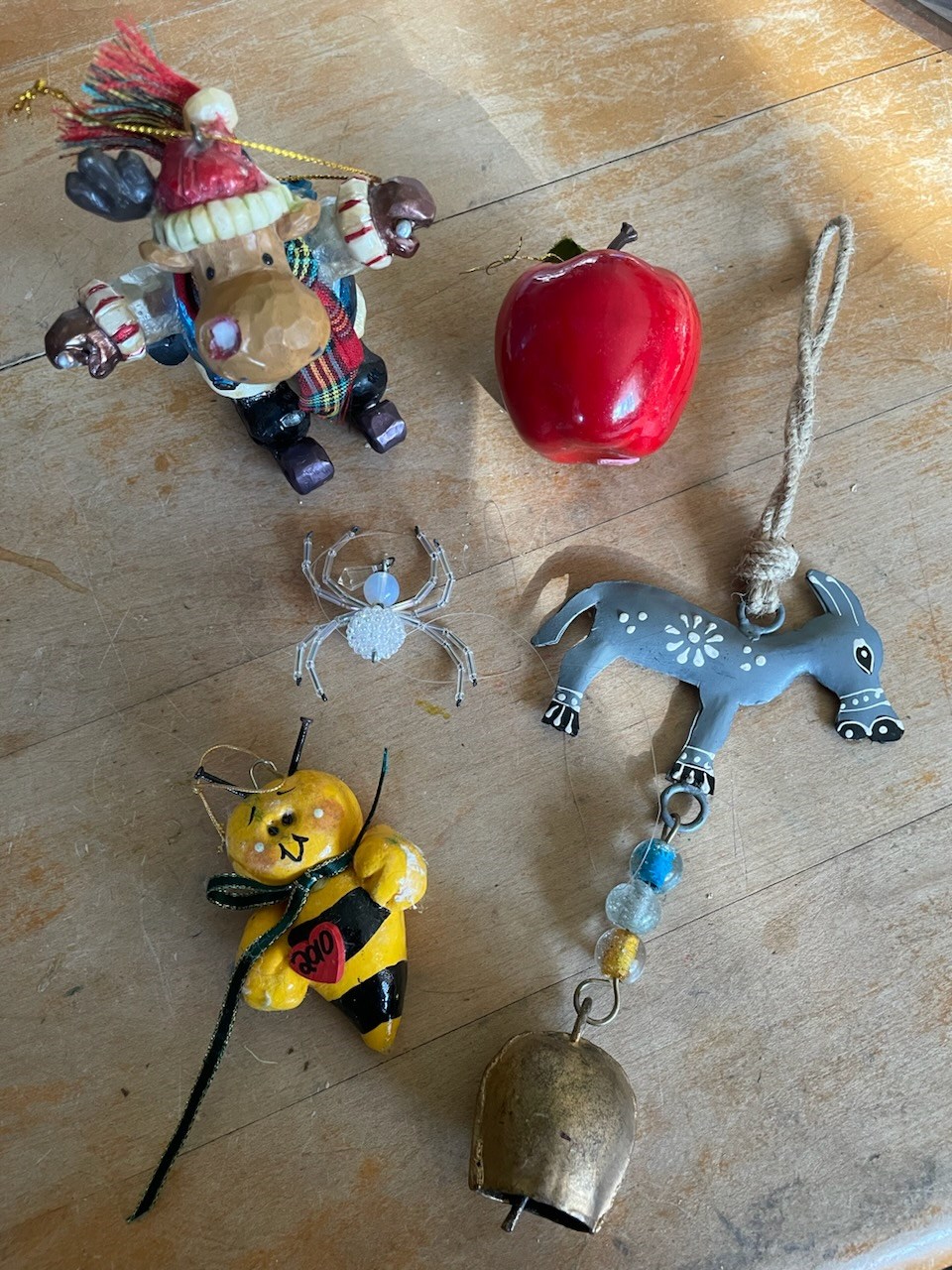How will you decorate your Christmas tree this year? Will you stay close to home and pull out the tried-and-true box of ornaments full of nostalgia, or will you try something new - an idea from another country?
Tradition tells us that the original idea for a decorated tree at Christmas time started in Germany in the 16th century. Martin Luther is believed to have put lighted candles on his family’s tree as they reminded him of the stars twinkling in the sky in winter. German settlers in America introduced the idea of a decorated tree in the 18th century, but the New England Puritans viewed them as desecrating “that sacred event” and having a decorated tree was a penal offence.
However, in 1846 in England, Queen Victoria and her husband Albert were depicted standing around a decorated Christmas tree with their children and the idea immediately became fashionable.
Early 20th-century North Americans decorated outdoor Christmas trees with homemade ornaments and strings of popcorn which were originally intended to feed the birds. The arrival of electricity brought Christmas tree lights, and now homes and yards are decorated with displays of figures, lights and music to delight (or annoy!) their neighbours.
There are many different traditions, and ornaments, associated with Christmas trees all over the world:
- in Mexico, the principal holiday ornament is a Nativity scene but artificial trees or branches from local trees are often incorporated.
- in Norway, parents decorate the tree while the children wait outside. Then they circle the tree, walking around it while singing carols.
- Christmas tree decorations in the Philippines are called parol, ornamental lanterns typically made from bamboo and Japanese paper and lit from inside.
- Ukrainian decorations mimic spider webs shimmering with dew. An old folk tale tells the story of a poor widow who couldn’t afford to decorate a tree for her children, so the spiders in the house spun beautiful webs all over her tree.
- In France, tree ornaments often take the shape of red apples which have a religious association with the Garden of Eden.
- In Australia, Christmas is in summer so decorations are often shells or other things associated with being on the beach. Australians typically “fire up the barbie” at Christmas to celebrate while eating outside.
- Finish trees are decorated with himmelikits - geometric straw ornaments that are thought to bring a good harvest in the upcoming year.
- Christmas trees in Denmark are decorated with julehjerte - ornaments made of pleated and plaited red and white paper in a heart shape, which are filled with nuts or sweets.
- Children in Iceland are visited by 13 trolls for the 13 days before Christmas. They leave a shoe by their bedroom window for the trolls to fill with gifts, but if they have badly behaved, they may receive rotten potatoes instead of a gift. The trolls are popular as tree ornaments.
- Christmas in Japan is a secular holiday, but Christmas trees are popular and are decorated with gold paper fans, lanterns, wind chimes and most popular - origami cranes. As an aside, a popular Japanese tradition at Christmas is to eat at Kentucky Fried Chicken!
- In China, “trees of light” at Christmas are usually artificial trees decorated with spangles, paper chains, flowers and lanterns.
Decorated Christmas trees in Canada are thought to have been introduced in 1781 by a baroness who placed a tree in her home and decorated it with white candles. Our Christmas tree decorations now reflect traditions from many countries.
So try something new this Christmas! Hang a troll or two on your tree, or make a parol or some himmelikits before you fire up the barbie or run out to KFC.
Ginnie Hartley is a retired speech-language pathologist with an interest in writing, gardening and obscure facts!
This column is provided courtesy of the Saskatchewan Perennial Society (SPS; [email protected]). Check our website (www.saskperennial.ca) or Facebook page (www.facebook.com/saskperennial) for a list of upcoming gardening events.
Keep your news a touch away by bookmarking The News-Optimist homepage at this link.




